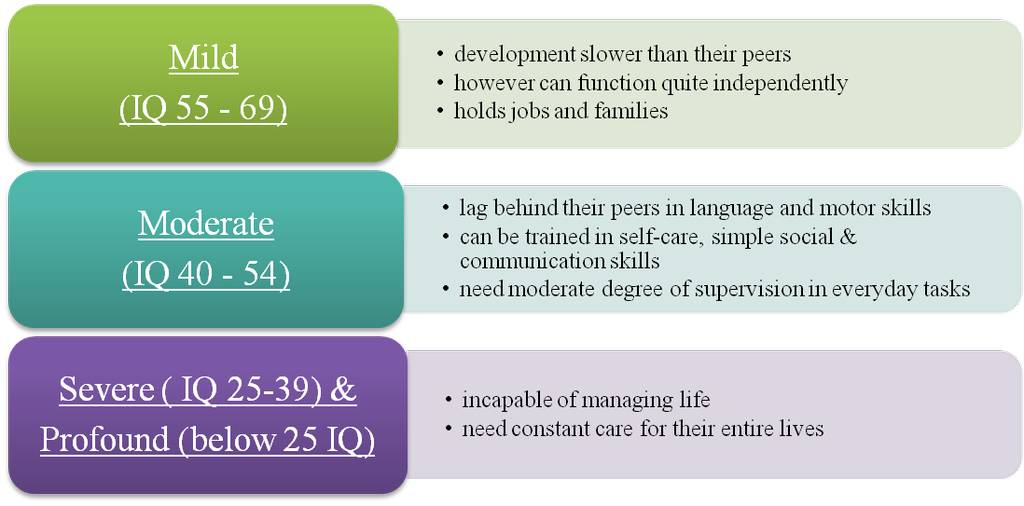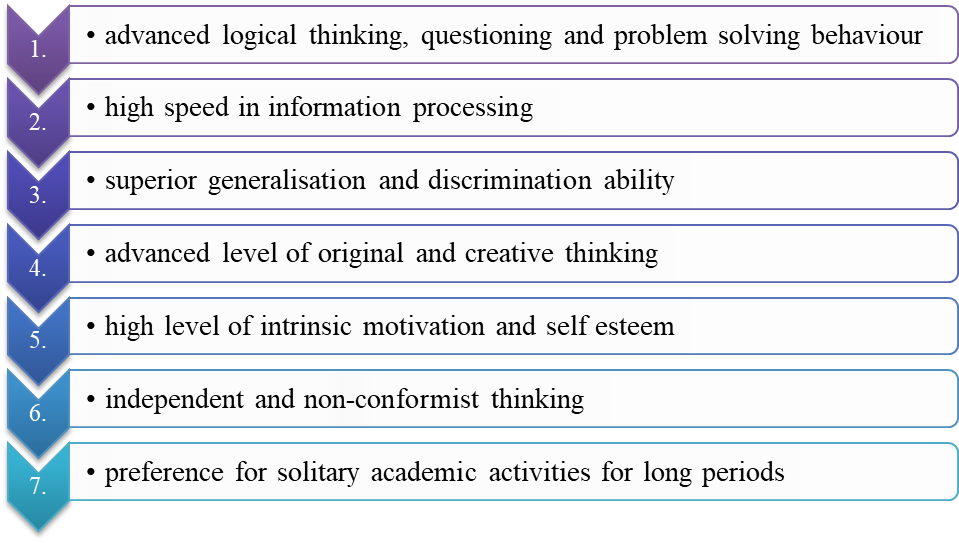- Books Name
- Psychology Book Class-12
- Publication
- PathSet Publications
- Course
- CBSE Class 12
- Subject
- Psychology
Variations of Intelligence
Intellectual Deficiency
- Children face enormous difficulty in learning even very simple skills
- These children who show intellectual deficiency are 'intellectually disabled'
- The American Association on Mental Deficiency (AAMD) views intellectual disability as "significantly sub-average general intellectual functioning existing concurrently with deficits in adaptive behaviour and manifested during the developmental age."
Three features of the above definition are:
- 'significantly sub-average intellectual functioning' is a must to be regarded as intellectually disabled having IQ below 70.
- 'deficits in adaptive behaviour' where, adaptive behaviour means a person's capacity to be independent and deal effectively with one's environment.
- deficits must be observed during the 'developmental period' i.e. between 0 and 18yrs of age.
- Taught to work and function with special attention
- Some cannot be trained and require institutional care throughout their lives
- Different levels of intellectually disability:

Intellectual Giftedness
- Higher performance because of their outstanding potentialities.
- Giftedness is exceptional general ability shown in superior performance in a wide variety of areas
- Talent refers to remarkable ability in a specific field. The highly talented are sometimes called 'prodigies'.
- Giftedness depends on a combination of high ability, high creativity, and high commitment, from teachers’ point of view.
- Gifted children show early signs of intellectual superiority. Even during infancy and early childhood, they show:
- larger attention span
- good recognition memory
- preference for novelty
- sensitivity to environmental changes
- early appearance of language skills
Characteristics of gifted children are:


 PathSet Publications
PathSet Publications
